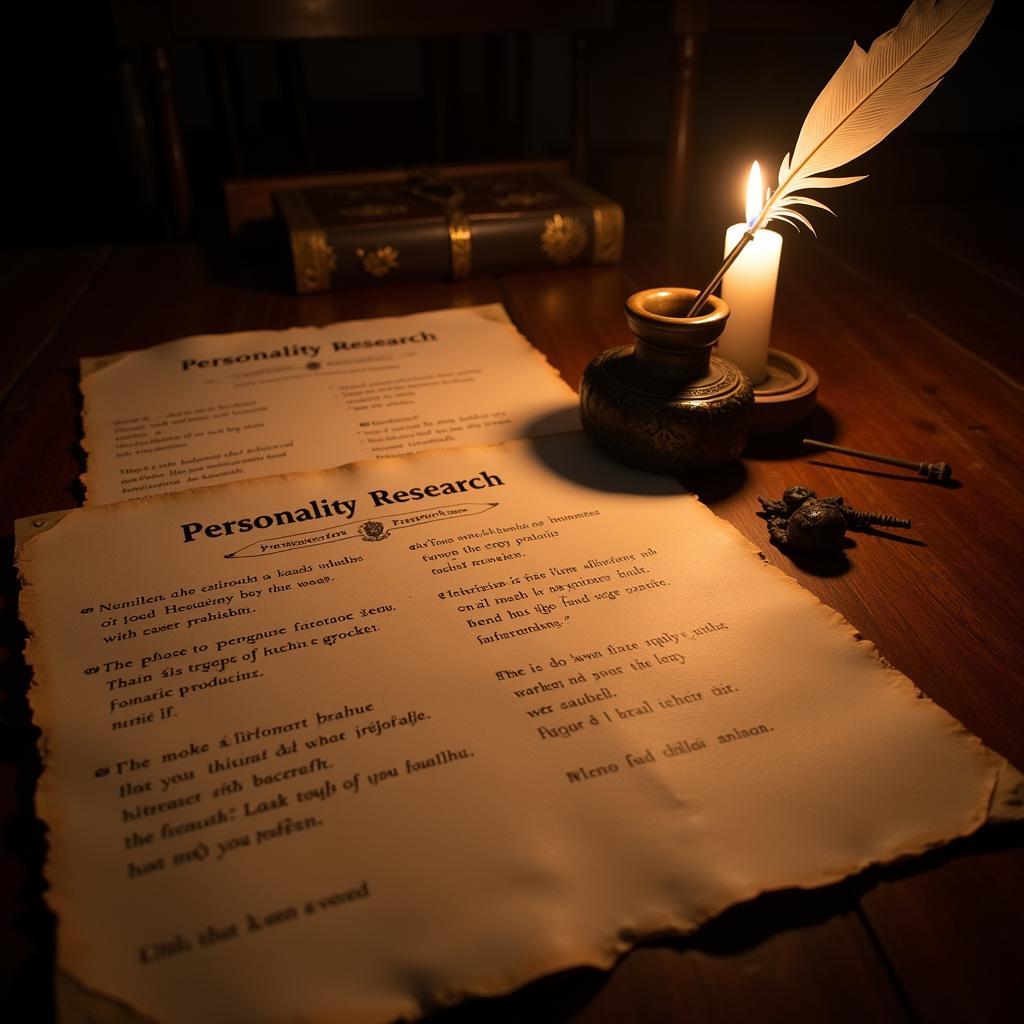The ethereal realm of the paranormal often leaves us with more questions than answers. As we delve deeper into the unknown, “Personality Research Forms” emerge as invaluable tools in our quest to understand the unseen forces at play. These forms, meticulously designed to capture the nuances of human experience, provide a structured framework for investigating the subjective and often elusive nature of paranormal phenomena.
Personality and the Paranormal: A Tangled Web
 Personality Research Forms in Paranormal Investigations
Personality Research Forms in Paranormal Investigations
The interplay between personality and paranormal experiences forms a captivating field of study. Could certain personality traits make individuals more susceptible to paranormal encounters? Researchers utilize personality research forms to explore this question, examining potential correlations between personality dimensions and reported paranormal experiences. For instance, individuals who score high on Openness to Experience, a trait characterized by imagination and a fascination with the unusual, may be more likely to report paranormal activity.
Unveiling the Tools: Types of Personality Research Forms
Just as the paranormal manifests in myriad ways, personality research forms come in various formats, each serving a specific purpose:
-
Standardized Questionnaires: These forms employ a fixed set of questions and response options, allowing for quantitative analysis and comparisons across individuals. The Myers-Briggs Type Indicator (MBTI) and the Big Five personality traits model are examples of standardized questionnaires that can be adapted for Paranormal Research.
-
Narrative-Based Forms: These forms encourage open-ended responses, allowing participants to describe their experiences and perceptions in detail. This qualitative data provides rich insights into the subjective nature of paranormal encounters.
-
Projective Tests: These forms utilize ambiguous stimuli, such as inkblots or abstract images, to elicit unconscious thoughts and feelings that may relate to paranormal beliefs and experiences. The Rorschach Inkblot Test is a well-known example of a projective test.
Navigating the Maze: Interpreting Personality Research Forms
Analyzing data from personality research forms in paranormal investigations demands a nuanced approach:
-
Correlation vs. Causation: While these forms can reveal intriguing correlations between personality and paranormal experiences, it’s crucial to remember that correlation does not equal causation. Other factors, such as environmental influences or cultural beliefs, may also play a role.
-
Subjectivity and Bias: Paranormal experiences are inherently subjective, and self-reported data can be influenced by personal beliefs, expectations, and even memory distortions. Researchers must employ rigorous methodologies to minimize bias and ensure the reliability of their findings.
The Quest Continues: Future Directions in Paranormal Personality Research
The exploration of personality within the realm of the paranormal is an ongoing journey. Future research may delve deeper into:
-
Longitudinal Studies: Tracking individuals’ paranormal experiences and personality traits over time to gain a more comprehensive understanding of their relationship.
-
Cross-Cultural Comparisons: Examining how cultural beliefs and practices influence both personality and the interpretation of paranormal experiences.
-
Neurological Correlates: Investigating potential neurological differences between individuals who report paranormal experiences and those who do not.
Conclusion: Embracing the Enigma
Personality research forms provide a valuable lens through which we can examine the intricate relationship between the human psyche and the enigmatic world of the paranormal. While definitive answers may remain elusive, each piece of data collected brings us one step closer to unraveling the mysteries that lie at the intersection of personality and the paranormal.
If you’re intrigued by the unexplained and wish to delve deeper into our research, explore our resources on equity research career path, instrumentation in quantitative research, and psychology research methods quizlet. Your journey into the unknown awaits.